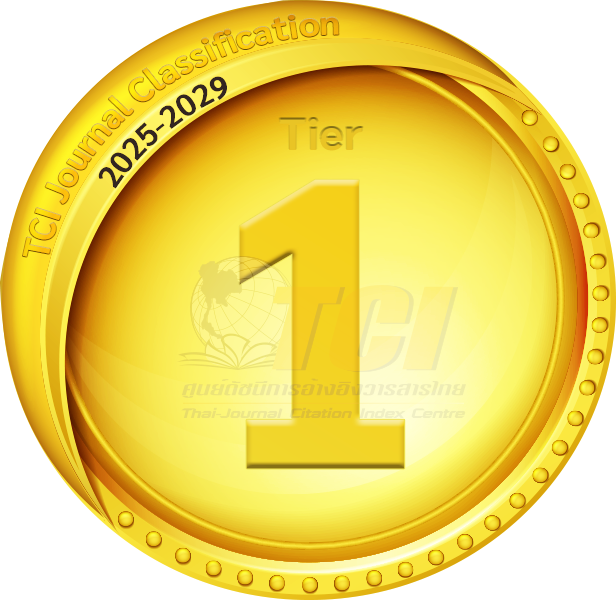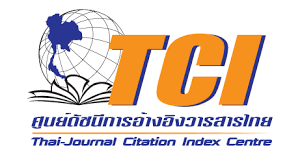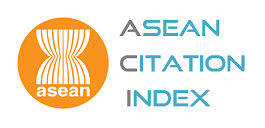Modernization through the BCG Model: Rice Industry in Circular Economy
- Nathathai Rattanasuksri, College of Leadership and Social Innovation, Rangsit University, Pathum Thani 12000, Thailand, Corresponding Author, E-mail: Chocominnie.r@gmail.com
- Rattaphong Sonsuphap, Faculty of Economics, Rangsit University, Pathum Thani 12000, Thailand
- Kiatichai Pongpanich, Faculty of Political Science, Rangsit University, Pathum Thani 12000, Thailand
Abstract
This study investigates the potential integration of the BCG Model and innovative practices into Thailand's rice supply chain. The BCG Model, renowned for its versatility across industries, offers a promising framework for enhancing efficiency and sustainability in rice production. Through the adoption of innovative strategies such as precision agriculture and value-added product development, this study aims to optimize resource utilization, reduce production costs, and enhance the value proposition of Thai rice products. By examining stakeholder engagement, technological adoption, and market dynamics, this study seeks to delineate actionable strategies for effectively implementing the BCG Model and fostering innovation within Thailand's rice supply chain. The findings contribute to the discourse on sustainable agricultural practices, offering insights for policymakers, industry stakeholders, and researchers who seek to promote economic growth and environmental stewardship in the rice industry. This study underscores the importance of combining cutting-edge methodologies with traditional practices to achieve a balanced approach to rice production that can address both economic and environmental concerns. Through collaborative efforts and strategic initiatives, Thailand can position itself as a leader in sustainable rice production, driving positive change within the global agricultural landscape.
Keywords: BCG Model, Rice Supply Chain, Sustainable Development, Circular Economy
References
Barbier, E. B. (2009). Ecosystems as Natural Assets. Foundations and Trends in Microeconomics, 4(8), 611-681. http://dx.doi.org/10.1561/0700000031
BCG. (2023). Mobility action plan development of Thailand with an economic model BCG 2021-2027. Retrieved from https://www.bcg.in.th/bcg-action-plan/
Birner, R. (2018). Bioeconomy Concepts. In: Lewandowski, I. (Ed.), Bioeconomy: Shaping the transition to a sustainable, biobased economy, 17-38. https://doi.org/10.1007/978-3-319-68152-8_3
Blomsma, F., & Brennan, G. (2017). The Emergence of Circular Economy: A New Framing Around Prolonging Resource Productivity. Journal of Industrial Ecology, 21(3), 603-614. https://onlinelibrary.wiley.com/doi/pdf/10.1111/jiec.12603
Bröring, S., Laibach, N., & Wustmans, M. (2020). Innovation types in the bioeconomy. Journal of Cleaner Production, 266, Article 121939. https://doi.org/10.1016/j.jclepro.2020.121939
Carus, M., & Dammer, L. (2018). The circular bioeconomy-concepts, opportunities, and limitations. Industrial Biotechnology, 14(2), 83–91. https://doi.org/10.1089/ind.2018.29121.mca
Chen, W., Oldfield, T. L., Katsantonis, D., Kadoglidou, K., Wood, R., & Holden, N. M. (2019). The socio-economic impacts of introducing circular economy into Mediterranean rice production. Journal of Cleaner Production, 218, 273-283. https://doi.org/10.1016/j.jclepro.2019.01.334
Chutipat, V., Sonsuphap, R., & Pintong, W. (2023). Bio-circular-green model in a developing economy. Corporate Governance and Organizational Behavior Review, 7(1), 150–157. https://doi.org/10.22495/cgobrv7i1p14
Corvellec, H., Stowell, A. F., & Johansson, N. (2022). Critiques of the circular economy. Journal of Industrial Ecology, 26(2), 421–432. https://doi.org/10.1111/jiec.13187
Edyvean, R. G., Apiwatanapiwat, W., Vaithanomsat, P., Boondaeng, A., Janchai, P., & Sophonthammaphat, S. (2023). The bio-circular green economy model in thailand-a comparative review. Agriculture and Natural Resources, 57(1), 51-64. https://doi.org/10.34044/j.anres.2023.57.1.06
FAO. (2023). Dashboard on bioeconomy strategies and related actions for sustainable development. Retrieved from https://www.fao.org/in-action/sustainable-and-circular-bioeconomy/en/
Intapan, C., & Chaiboonsri, C. (2023). Measuring the Technical Efficiency of Thai Rubber Export Using the Spatial Stochastic Frontier Model Under the BCG Concept. Mobile Computing and Sustainable Informatics: Proceedings of ICMCSI 2023. Singapore: Springer Nature Singapore. https://doi.org/10.1007/978-981-99-0835-6_1
Jaroenkietkajorn, U., Gheewala, S. H., Mungkung, R., Jakrawatana, N., Silalertruksa, T., Lecksiwilai, N., ... & Nilsalab, P. (2024). Challenges and opportunities of bio-circular-green economy for agriculture. Circular Economy and Sustainability, 4, 1729–1750. https://doi.org/10.1007/s43615-024-00355-9
Kaewhao, S. (2023). Bio-circular-green model knowledge and environmental knowledge causing sustainable development perspective. African Educational Research Journal, 11(2), 182-190. https://doi.org/10.30918/AERJ.112.23.024
Kardung, M., Cingiz, K., Costenoble, O., Delahaye, R., Heijman, W., Lovrić, M., ... & Zhu, B. X. (2021). Development of the circular bioeconomy: Drivers and indicators. Sustainability, 13(1), Article 413. https://doi.org/10.3390/su13010413
Khoshnava, S. M., Rostami, R., Zin, R. M., Štreimikienė, D., Yousefpour, A., Strielkowski, W., & Mardani, A. (2019). Aligning the criteria of green economy (GE) and sustainable development goals (SDGs) to implement sustainable development. Sustainability, 11(17), Article 4615. https://doi.org/10.3390/su11174615
Marsh, A. T., Velenturf, A. P., & Bernal, S. A. (2022). Circular Economy strategies for concrete: implementation and integration. Journal of Cleaner Production, 362, Article 132486. https://doi.org/10.1016/j.jclepro.2022.132486
Mesinsee, S. (2020). BCG Economy Model: Strategies to Drive Thailand Towards a Sustainable Future. Retrieved from https://www.nstda.or.th/home/knowledge_post/what-is-bcg-economy-model/
Mulgan, G., Tucker, S., Ali, R., & Sanders, B. (2007). Social innovation: what it is, why it matters and how it can be accelerated. Retrieved from https://resources.equityinitiative.org/bitstream/handle/ei/254/Social_Innovation.pdf?sequence=1
National News Bureau of Thailand. (2022). Thailand to promote BCG model at APEC summit. Thai PBS World. Retrieved from https://www.youtube.com/watch?v=W6CF8CtBjO4
National Science and Technology Development Agency (2021). BCG Policy Board approves strategic plan and policy measures to drive BCG agenda. Retrieved from https://www.nstda.or.th/thaibioeconomy/146-bcg-policy-board-approves-strategic-plan-and-policy-measures-to-drive-bcg-agenda.html
Pasca, M. G., Padovani, G., Arcese, G., & Mugion, R. G. (2023). How does the circular economy contribute to the pursuit of Agenda 2030? A systematic literature review. 4th International Conference on Environmental Design (ICED2023). Athens, Greece. https://doi.org/10.1051/e3sconf/202343605004
Phurksaphanrat, B., & Panjavongroj, S. (2023). A hybrid method for occupations selection in the bio-circular-green economy project of the national housing authority in Thailand. Decision Making: Applications in Management and Engineering, 6(2), 177-200. https://doi.org/10.31181/dmame622023741
Sirilertworakul, N. (2021). BCG Model: Fostering Sustainable Development in Thai Economy. Retrieved from https://www.bookcaze.com/products/pdf_free/29061.pdf
Stegmann, P., Londo, M., & Junginger, M. (2020). The circular bioeconomy: Its elements and role in European bioeconomy clusters. Resources, Conservation & Recycling: X, 6, Article 100029. https://doi.org/10.1016/j.rcrx.2019.100029
Thai Rice Exporters Association. (n.d.). History of Rice. Retrieved from http://www.thairiceexporters.or.th/rice_profile.htm
Thetlek, R., Shaengchart, Y., Kraiwanit, T., Jangjarat, K., Limna, P., & Moolngearn, P. (2024). Innovation management and impact on social economy: A perspective of community enterprise in a developing country [Special issue]. Journal of Governance & Regulation, 13(1), 264-276. https://doi.org/10.22495/jgrv13i1siart1
Thiengkamol, K. N. (2020). Administration of Sustainable Environment and Natural Resource Book. Bangkok, Thailand: Se-Ed E-Book Online
Vinci, G., Ruggieri, R., Ruggeri, M., & Prencipe, S. A. (2023). Rice production chain: environmental and social impact assessment-a review. Agriculture, 13(2), Article 340. https://doi.org/10.3390/agriculture13020340
Wisalaporn, S., & Sripruetkiat, K. (2023). Thai Agricultural Supply Chain: Overcoming Past Obstacles and Preparing for Future Challenges. Retrieved from https://ap.fftc.org.tw/article/3423

Indexed in


Search